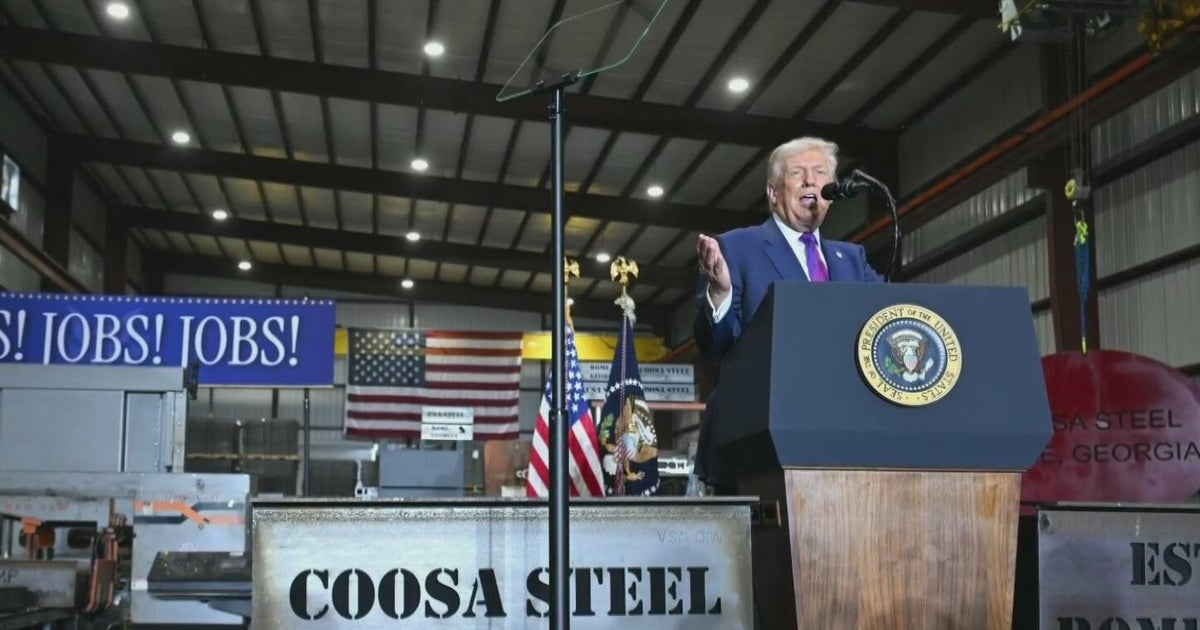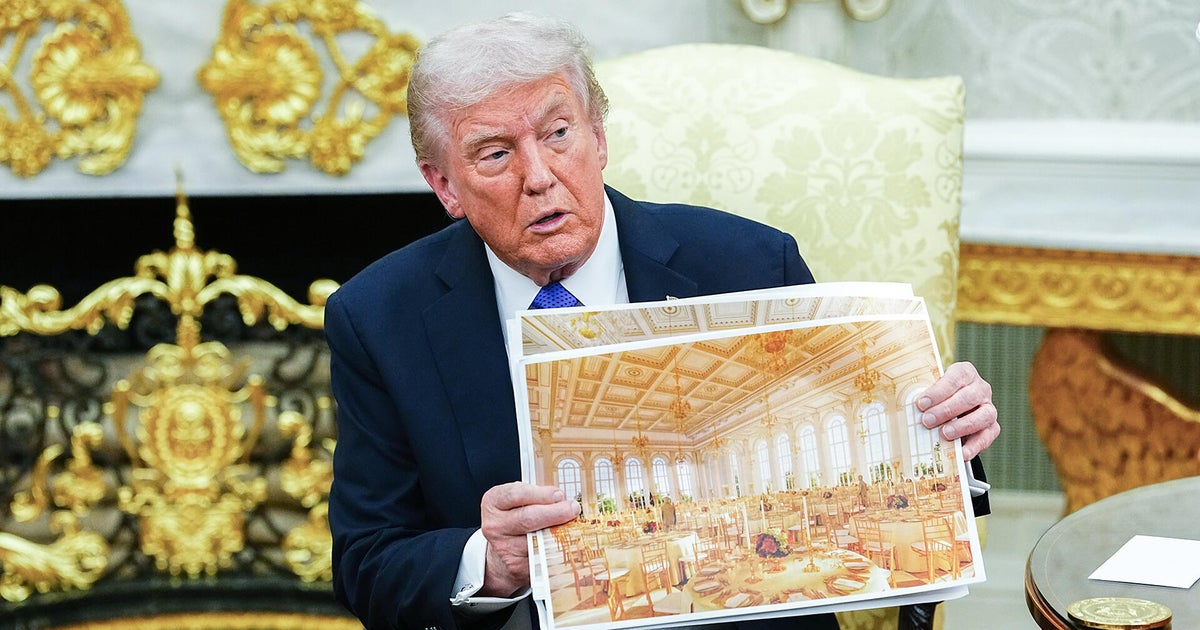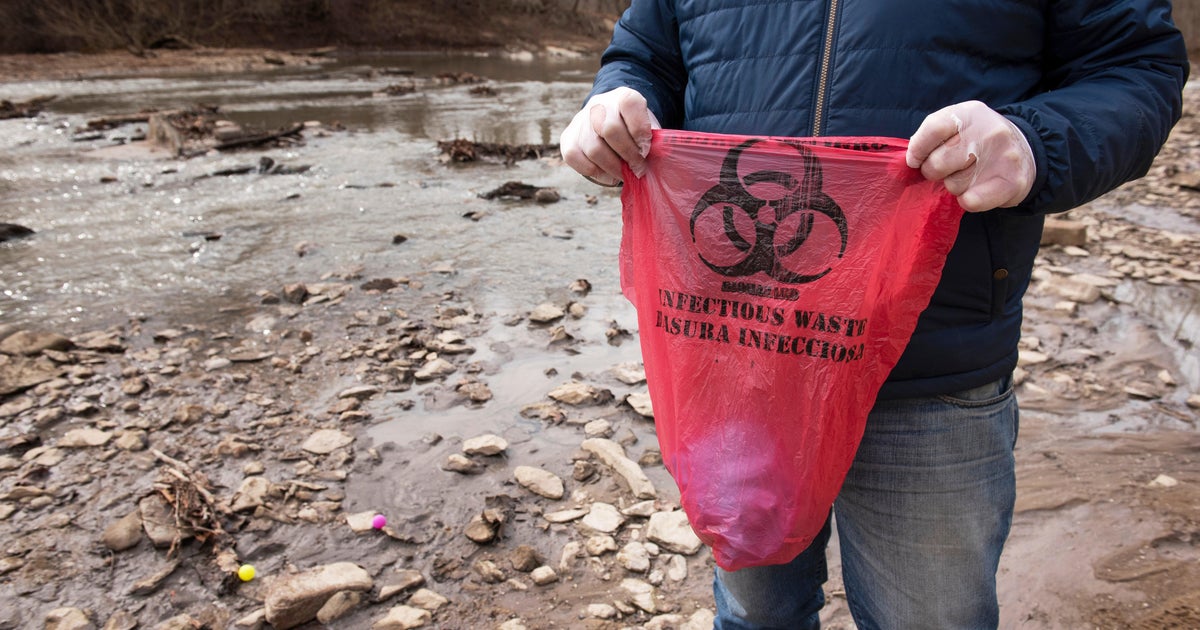Trump opposes TikTok ban, asks Supreme Court for time to resolve via negotiations
Washington — Lawyers for TikTok urged the Supreme Court on Friday to find unconstitutional a new law that could lead to a ban of the widely popular app in the United States, arguing that shuttering TikTok will silence not only its speech, but also that of the platform's more than 170 million American users. President-elect Donald Trump also filed a separate brief in which he stated that he opposes the ban at the current moment and requests time to resolve the dispute via political negotiations.
In an opening brief filed with the justices, which provides a first look at the arguments TikTok will make to the high court next month, lawyers for the platform urged them to reverse a decision from a three-judge appeals court panel that upheld the ban.
Lawyers for TikTok said in their filing that they "do not contest Congress's compelling interest in protecting this nation's security, or the many weapons it has to do so. But that arsenal simply does not include suppressing the speech of Americans because other Americans may be persuaded."
In its own filing laying out arguments for upholding the ban, the Justice Department argued the law is consistent with the First Amendment and said the government has a compelling interest in preventing threats to national security posed by control of TikTok by a foreign adversary, China.
The law, Solicitor General Elizabeth Prelogar wrote, "addresses the serious threats to national security posed by the Chinese government's control of TikTok, a platform that harvests sensitive data about tens of millions of Americans and would be a potent tool for covert influence operations by a foreign adversary. And the Act mitigates those threats not by imposing any restriction on speech, but instead by prohibiting a foreign adversary from controlling the platform."
The high court said last week that it would take up TikTok's challenge to the ban, which was passed by Congress as part of a foreign aid package in April. The company had asked the Supreme Court to temporarily block the law and urged it to intervene before Jan. 19, when the prohibition is set to take effect.
The justices said they will consider whether the measure violates the First Amendment, and scheduled two hours of arguments for Jan. 10, an expedited timeline that could bring a ruling soon after. In addition to TikTok's challenge, the Supreme Court will consider a separate bid by a group of the platform's users to block the ban.
The case will be argued in the final days of the Biden administration, but Trump, who will take office Jan. 20, has expressed support for TikTok. Trump tried to ban the app during his first term in office, but reversed his position during his campaign. The president-elect vowed to "save" the app, and told reporters earlier this month that he has "a warm spot in my heart for TikTok."
In a friend-of-the-court brief filed with the Supreme Court, a lawyer for Trump, D. John Sauer, said he opposes banning the platform in the U.S. "at this juncture" and "seeks the ability to resolve the issues at hand through political means once he takes office." Trump announced in November that he plans to nominate Sauer to serve as solicitor general in his second term.
The president-elect asked the Supreme Court to pause the law's Jan. 19 effective date to allow his new administration to "pursue a negotiated resolution that could prevent a nationwide shutdown of TikTok, thus preserving the First Amendment rights of tens of millions of Americans, while also addressing the government's national security concerns."
Citing the Jan. 19 deadline, Trump said it interferes with his "ability to manage the United States' foreign policy and to pursue a resolution to both protect national security and save a social-media platform that provides a popular vehicle for 170 million Americans to exercise their core First Amendment rights."
Lawmakers sought to restrict access to TikTok in the U.S. amid concerns about its ties to China. The platform is owned by Beijing-based ByteDance, and members from both parties, as well as intelligence agencies, have warned that the app could give the Chinese government access to data from the roughly 170 million Americans who use TikTok. They have also raised concerns that TikTok could be used by the Chinese government to covertly manipulate content on the platform and influence public dialogue.
Under the law, TikTok had nine months to divest from ByteDance or lose access to all app stores and web-hosting services in the U.S. The measure allows the president to grant a one-time, 90-day delay if a sale is in progress by Jan. 19.
Lawyers for TikTok have argued that divesture is not possible, and the Chinese government has vowed to block the sale of the platform's powerful algorithm, which tailors content recommendations to users.
Brought in May, TikTok argued in its challenge to the law that it violates the First Amendment rights of the platform and its users. The company also said Congress targeted it with its ban, which would bar every American from participating in its "unique online community."
But a panel of three judges on the U.S. Court of Appeals for the District of Columbia Circuit disagreed, and found that the government's national security justification for the law is consistent with the First Amendment.
"The First Amendment exists to protect free speech in the United States," Senior Judge Douglas Ginsburg, appointed by President Ronald Reagan, wrote for the unanimous court. "Here the government acted solely to protect that freedom from a foreign adversary nation and to limit that adversary's ability to gather data on people in the United States."
Ginsburg, joined by Judge Neomi Rao, tapped by Trump, and Chief Judge Sri Srinivasan, appointed by President Barack Obama, said that while the decision will have significant implications for TikTok and its users, "that burden is attributable to [China's] hybrid commercial threat to U.S. national security, not to the U.S. government."
The dispute has attracted a range of friend-of-the-court briefs from members of Congress, civil liberties groups, former national security officials and TikTok users.



